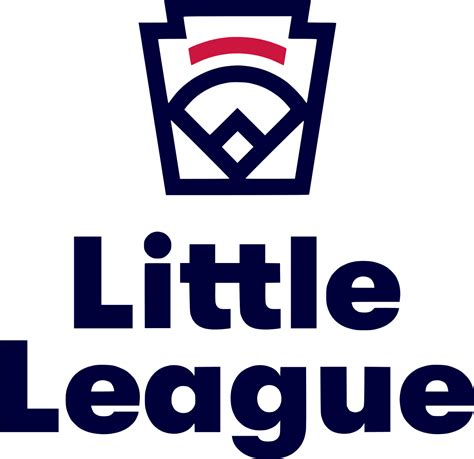Explore how Little League Baseball enhances teamwork, builds confidence, fosters social development, instills discipline, and offers long-term life skills benefits.The Impact Of Little League Baseball On Youth Development
In today’s fast-paced world, youth sports play a crucial role in shaping character and instilling valuable life skills. Little League Baseball stands out as an exemplary program that not only promotes physical fitness but also fosters essential social and emotional growth among its young participants. Through teamwork, discipline, and a sense of belonging, children learn to navigate both the joys and challenges of life on and off the field. As we explore the multifaceted impact of Little League Baseball on youth development, we will uncover how participation in this beloved sport builds confidence, hones teamwork skills, and lays the foundation for long-term personal growth. Join us in discovering why Little League Baseball is more than just a game; it’s a platform for nurturing well-rounded individuals prepared for the future.
The Impact Of Little League Baseball On Teamwork Skills
Participating in Little League Baseball provides young players with an invaluable opportunity to develop essential teamwork skills. As children come together to form a team, they learn the significance of collaboration and communication, which are critical traits for success both on and off the field.
One of the primary ways that Little League Baseball fosters teamwork skills is through the sport’s inherent structure. Players must learn to work together to achieve common goals, such as winning games or improving their overall performance. This collaborative effort encourages them to support each other, share responsibilities, and understand the dynamics of group interactions.
Moreover, during practices and games, players engage in various team activities that require effective communication and trust. For instance, during a baseball game, players must constantly communicate about strategies, positioning, and plays. This environment teaches them how to articulate their thoughts clearly and listen actively to their teammates, reinforcing their ability to work harmoniously within a group.
In addition to fostering verbal communication, the sport also emphasizes non-verbal cues and body language. Young athletes quickly learn to read their teammates’ signals and reactions, which enhances their ability to work seamlessly within a team setting. These skills are vital, as they translate into real-life situations where teamwork is essential, such as in school projects or future workplace collaborations.
Furthermore, Little League Baseball instills a sense of belonging and camaraderie among players, creating bonds that extend beyond the baseball diamond. These relationships cultivate a supportive network that encourages teamwork, helping players to develop empathy and understanding toward one another. This aspect of social interaction marks just another impact of Little League that is crucial for youth development.
The lessons learned in teamwork during Little League Baseball carry lasting effects into adulthood. From improved communication skills to better conflict resolution strategies, the impact of these experiences prepares young athletes for a collaborative world, making them not only better players but also better teammates in all aspects of their lives.
Building Confidence Through Little League Baseball Participation
Participation in Little League Baseball plays a pivotal role in fostering self-confidence among young players. As children engage in practices and games, they are given opportunities to develop their skills and showcase their abilities on the field. This process naturally enhances their self-esteem and belief in their capabilities.
One of the key aspects of building confidence in youth through Little League is the environment created by coaches and teammates. Positive reinforcement and encouragement from coaches help players understand that making mistakes is a part of learning. When children receive constructive feedback, they are more likely to take risks and push themselves to improve.
Additionally, achieving personal milestones, such as hitting a home run or making a crucial play, contributes significantly to a child’s self-worth. Each success, no matter how small, translates into a sense of accomplishment and pride. This is particularly important during these formative years, as experiences in Little League can shape their attitudes towards challenges in other areas of life.
Moreover, the social dynamics of being part of a team further bolster a child’s confidence. Forming bonds with teammates provides a support network where they learn to rely on one another, fostering a sense of belonging. This camaraderie develops resilience and encourages individuals to step out of their comfort zones.
The impact of Little League Baseball on youth development extends beyond athletic skills; it fundamentally enhances self-confidence. Through skill development, positive reinforcement, personal achievements, and teamwork, children learn to believe in themselves, paving the way for future successes both on and off the field.
The Impact Of Little League Baseball On Social Development
The role of sports in fostering social development among youth cannot be overstated. The impact of Little League Baseball extends beyond the diamond and into the social fabric of the participants. Engaging in this team sport provides children with foundational experiences that build long-lasting relationships and social skills. Through regular practice and games, players learn to interact with their peers, develop communication skills, and navigate group dynamics.
Little League Baseball encourages teamwork and cooperation as players must work together towards a common goal—winning games. This collaborative effort helps children understand the importance of working alongside others, respecting different roles, and appreciating diverse talents. Additionally, the relationships formed during these formative years often lead to lasting friendships, offering a supportive network that enhances social well-being.
Moreover, the competitive environment of Little League Baseball introduces children to the concept of sportsmanship. Learning to win graciously and lose gracefully is a critical aspect of social development, teaching them how to handle both triumphs and disappointments. Such experiences contribute to emotional intelligence and resilience, vital components in their future social interactions.
Parents and coaches play a significant role in shaping the social environment of Little League teams. Their encouragement and involvement help create a sense of community, further enriching the children’s social experiences. Participation in Little League often extends beyond the players to include family members and volunteers, building a broader community that fosters social connections and support.
The impact of Little League Baseball on social development is profound. By promoting teamwork, sportsmanship, and community engagement, this beloved youth sport not only shapes skilled athletes but also well-rounded individuals ready to navigate the complexities of social interactions throughout their lives.
How Little League Baseball Fosters Discipline And Work Ethic
Participating in Little League Baseball provides young athletes with a structured environment where they learn the importance of discipline and work ethic. The rigorous practice schedules and game-day preparations require players to commit time and effort consistently.
From the outset, players understand that regular attendance at practices is essential for both their personal development and the team’s success. This necessity instills a sense of responsibility, encouraging children to prioritize their commitments. As they juggle school, sports, and potentially other extracurricular activities, they learn to manage their time effectively, another critical aspect of discipline.
Moreover, the collective goal of the team cultivates a sense of unity and shared purpose. Players learn that their individual performances contribute to the overall success of the group. This fosters a work ethic characterized by mutual support and collaboration. They witness firsthand that diligence and hard work do not go unnoticed and are integral to achieving common objectives.
Coaches in Little League also play a pivotal role in reinforcing these values. They often emphasize the importance of practice, resilience, and perseverance, teaching players that success is rarely achieved without effort and dedication. Through this mentorship, kids start to connect their efforts with outcomes, leading to a deeper understanding of the impact of discipline on results.
The values nurtured in Little League Baseball—commitment, responsibility, and teamwork—contribute significantly to the development of a strong work ethic. This foundation not only benefits young players on the field but also equips them with skills that are crucial for their overall growth and success in life, embodying the profound impact of such formative experiences.
Long-Term Benefits: The Impact Of Little League Baseball On Life Skills
Participating in Little League Baseball offers more than just a fun way for children to spend their summer. The impact of this sport can be seen well into adulthood, as the skills and values learned on the field translate into essential life skills. Through teamwork, commitment, and resilience, young players cultivate attributes that enhance their personal and professional lives.
One of the key long-term benefits is the development of communication skills. On a baseball team, players must learn how to effectively communicate with one another, whether it’s on the field during a game or during practice. This ability to articulate thoughts and listen to others fosters stronger interpersonal skills, which can lead to better relationships in both personal and career settings.
Another significant benefit is problem-solving capability. Baseball is a game of strategy; players learn to think critically and make quick decisions under pressure. This skill is invaluable in everyday life, equipping youth to tackle challenges with confidence and creativity.
Moreover, participation in Little League encourages a strong sense of time management. Players must balance practices, games, schoolwork, and other commitments. Learning to prioritize tasks and manage schedules will serve them well in their academic and professional journeys.
The impact of sportsmanship and ethical behavior cannot be overlooked. Little League Baseball emphasizes respect for teammates, opponents, coaches, and officials. This sense of fair play and integrity forms the foundation of a responsible adult, guiding them to make ethical decisions in various aspects of life.
The long-term benefits of Little League Baseball extend far beyond the field, shaping young athletes into well-rounded individuals equipped with critical life skills.
Frequently Asked Questions
What is the main focus of the article?
The article explores how participation in Little League Baseball contributes to the development of youth in various aspects, including social skills, teamwork, and physical fitness.
How does Little League Baseball promote teamwork among children?
Little League Baseball requires players to work closely with their teammates, encouraging communication, collaboration, and a sense of shared responsibility, which are essential skills for personal and future professional success.
What are some physical benefits of playing Little League Baseball?
Playing baseball helps children improve their physical fitness, coordination, and overall health through regular exercise and active engagement in sports activities.
In what ways does Little League Baseball foster leadership skills?
Through various team roles and responsibilities, children learn to take initiative, make decisions, and motivate others, thus developing important leadership qualities.
How does participation in Little League Baseball affect academic performance?
Studies have shown that youth who engage in sports like Little League Baseball tend to have better time management skills, improved focus, and may foster a greater appreciation for discipline, all of which can enhance academic performance.
What role do coaches play in the development of young athletes in Little League?
Coaches serve as mentors for young players, providing guidance, support, and teaching important life lessons such as resilience, respect, and dedication both on and off the field.
How does Little League Baseball help in building a sense of community?
Little League encourages family involvement and community support, creating strong bonds among parents, players, and local organizations, which fosters a sense of belonging and community pride.









